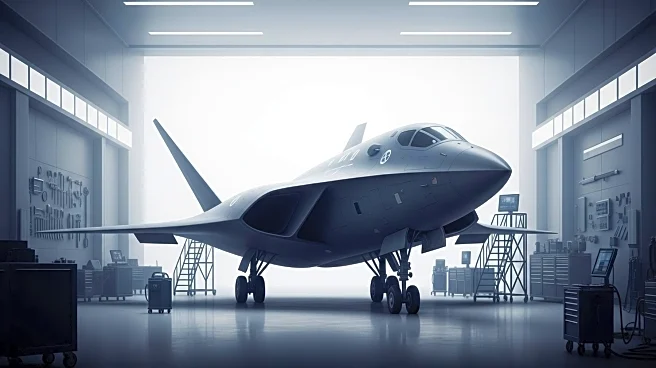What's Happening?
Boeing is reportedly in the early stages of developing a new single-aisle aircraft intended to replace the 737 MAX, according to sources cited by the Wall Street Journal. This move comes as Boeing seeks to maintain its competitive edge in the commercial aviation market, particularly in the single-aisle segment which is crucial for short to medium-haul flights. The 737 MAX has been a significant part of Boeing's fleet, but the company is looking to innovate and address future market demands. The report indicates that Boeing is focusing on design and technological advancements to enhance efficiency and performance in the new model.
Why It's Important?
The development of a successor to the 737 MAX is significant for several reasons. Firstly, it reflects Boeing's commitment to innovation and its response to evolving market needs. The single-aisle aircraft market is highly competitive, with Airbus being a major rival. By introducing a new model, Boeing aims to capture a larger share of this market and meet the demands of airlines seeking more fuel-efficient and technologically advanced aircraft. Additionally, this development could have substantial economic implications, potentially boosting Boeing's sales and impacting the broader aerospace industry, including suppliers and related sectors.
What's Next?
As Boeing progresses with the development of the new aircraft, industry stakeholders will be closely monitoring the company's announcements and design specifications. Airlines may begin evaluating the potential benefits of the new model for their fleets, considering factors such as cost efficiency and environmental impact. Furthermore, regulatory bodies will likely be involved in the certification process once the aircraft is ready for testing. The timeline for the aircraft's introduction to the market remains uncertain, but it is expected to be a focal point in Boeing's strategic planning.
Beyond the Headlines
The decision to develop a new aircraft model also highlights Boeing's strategic approach to addressing past challenges associated with the 737 MAX, including safety concerns and regulatory scrutiny. By focusing on innovation and improved design, Boeing aims to restore confidence among airlines and passengers. This development could also influence industry standards and expectations regarding aircraft safety and performance, potentially leading to broader changes in aviation technology and practices.









